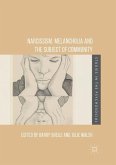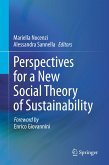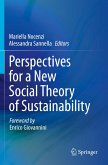This book analyzes the social and contextual causes of suicide, the existential and philosophical reasons for committing suicide, and the prevention strategies that modern fictional literature places at our disposal. They go through the review of Modern fictional literature, in the American and European geographical framework, following the rationales that modern literature based on fiction can serve the purpose of understanding better the phenomenon of suicide, its most inaccessible impulses, and that has the potential to prevent suicide.
From the turn of the 20th century to the present, debates over the meaning of suicide became a privileged site for efforts to discover the reasons why people commit suicide and how to prevent this behavior. Since the French sociologist and philosopher Émile Durkheim published his study Suicide: A Study in Sociology in 1897, a reframing of suicide took place, giving rise to a flourishing group of researchers and authors devoting their effortsto understand better the causes of suicide and to the formation of suicide prevention organizations. A century later, we still keep on trying to reach such an understanding of suicide, the nature, and nuances of its modern conceptualization, to prevent suicidal behaviors.
The question of what suicide means in and for modernity is not an overcome one. Suicide is an act that touches all of our lives and engages with the incomprehensible and unsayable. Since the turn of the millennium, a fierce debate about the state's role in assisted suicide has been adopted. Beyond the discussion as to whether physicians should assist in the suicide of patients with unbearable and hopeless suffering, the scope of the suicidal agency is much broader concerning general people wanting to die.
From the turn of the 20th century to the present, debates over the meaning of suicide became a privileged site for efforts to discover the reasons why people commit suicide and how to prevent this behavior. Since the French sociologist and philosopher Émile Durkheim published his study Suicide: A Study in Sociology in 1897, a reframing of suicide took place, giving rise to a flourishing group of researchers and authors devoting their effortsto understand better the causes of suicide and to the formation of suicide prevention organizations. A century later, we still keep on trying to reach such an understanding of suicide, the nature, and nuances of its modern conceptualization, to prevent suicidal behaviors.
The question of what suicide means in and for modernity is not an overcome one. Suicide is an act that touches all of our lives and engages with the incomprehensible and unsayable. Since the turn of the millennium, a fierce debate about the state's role in assisted suicide has been adopted. Beyond the discussion as to whether physicians should assist in the suicide of patients with unbearable and hopeless suffering, the scope of the suicidal agency is much broader concerning general people wanting to die.








